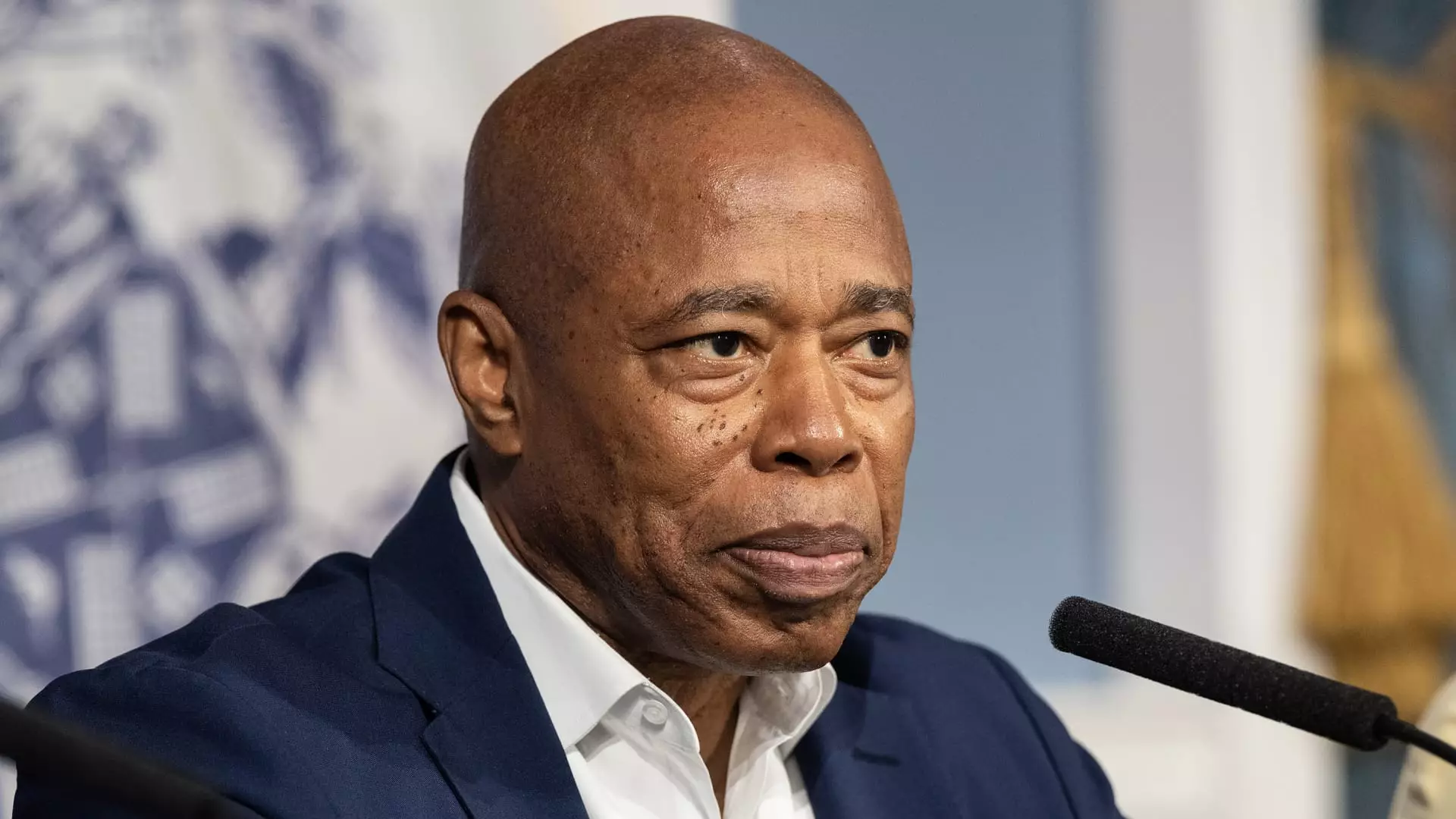In a surprising turn of events, President-elect Donald Trump revealed intentions to consider a pardon for New York City Mayor Eric Adams, who is currently facing federal corruption charges. This announcement came during a press conference at his Mar-a-Lago resort in Florida, a setting that not only highlights Trump’s ever-present ties to luxury but also serves as a backdrop for his ongoing political maneuvers. Trump characterized the charges against Adams as unfair, reflecting his habitual skepticism regarding the legal processing of his political allies, especially within a landscape that many perceive as highly partisan.
Mayor Adams, a member of the Democratic Party, has pleaded not guilty to the allegations surrounding his acceptance of lavish gifts and foreign contributions. The breadth of the charges is staggering, spanning nearly a decade and including claims of accepting luxury travel from affluent overseas figures and conspiracy regarding potentially unlawful campaign contributions for his election in 2021. Although Trump expressed a rather casual attitude toward these legal challenges, describing them as trivial, the reality is that these allegations could fundamentally compromise Adams’s political career and the integrity of his administration.
Trump’s political commentary post-indictment, suggesting that the charges may arise from Adams’ defiance against the federal government’s immigration policies, adds another layer of complexity to the affair. It raises questions about the intersection of politics, legal accountability, and personal vendettas. If Trump is correct in assuming that Adams’s legal troubles are intricately connected to his vocal opposition to federal policy, this incident could represent a troubling precedent where political dissent triggers judicial actions.
As the American political environment becomes increasingly contentious, Trump’s response highlights his strategy of positioning himself as a defender of those he perceives as being unjustly targeted. His willingness to contemplate a pardon for Adams is not merely an act of mercy; it serves a dual purpose of consolidating his base while also appealing to moderate voters disenchanted with the establishment’s methods of handling political opponents. This maneuvering showcases Trump’s adeptness at navigating political waters, ensuring he remains a central figure in conversations about justice and political integrity.
Moreover, the timing of these remarks—following Trump’s announcement with Softbank CEO Masayoshi Son regarding a commendable investment in the U.S.—signals a strategic approach to counterbalance potentially negative press. Trump is skilled at linking his political and business interests, which allows him to maintain relevance and reinforce his influence across different sectors.
Looking forward, the implications of this situation extend beyond the personal ramifications for Adams and Trump. The prospect of pardons intertwined with political alliances raises unsettling questions regarding the sanctity of legal processes in politics. If pardons become tools of political expediency, this may lead to a more fractured political landscape, where loyalty supersedes legal accountability. This complexity calls for a rigorous examination of how justice is administered in an era defined by political partisanship and sensationalism.
The narrative surrounding Eric Adams and Donald Trump is emblematic of broader political trends in America, where the intertwining of personal ambition, legal scrutiny, and political allegiance creates an intricate and often problematic dynamic. As the situation develops, it will be critical to observe how these elements will reshape the future of governance and justice in the United States.


Leave a Reply